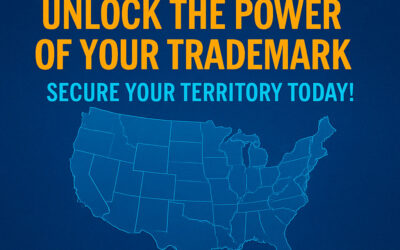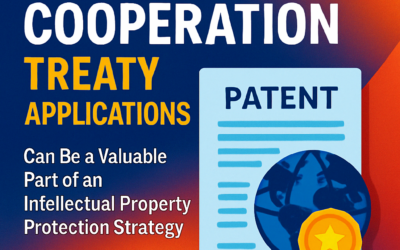AHOY, and a happy International Talk Like a Pirate Day from the crew here at Garcia-Zamor! September 19th is a swashbuckling fun day to be on social media, talking like a pirate with all your mateys, but aboard our firm, we’re much more concerned with a different kind of pirate — online pirates. Rather than raiding your ship, online pirates will loot your intellectual property and try to pass it off as their own treasure. We’ll help you protect your work from these scurvy knaves and know when to hoist your colors and take action!
What Is Online Piracy?
Online piracy is the practice of downloading an unauthorized file of someone’s copyrighted work and/or distributing that work. Online pirates often start by making digital copies of music, software, books, etc., which they then post to the internet or sell for their own profit. By law, your copyrighted work belongs to you. It can’t be obtained or sold without your permission (for which you may choose to receive royalties). However, effectively enforcing your rights starts with preparing a federal copyright registration strategy prior to pirates trying to board your ship.
How To Protect Yourself From Online Piracy
Online piracy decreases the demand when it comes to new music, games, books, TV shows, movies, and more. This can hurt the creator’s profit margins and even lessen the chance that they’ll be able to publish more content in the future. If you own a federal copyright registration for your creative work, you can protect it from online piracy. Here are a few steps to help:
Be Transparent With Your Audience
Let your audience know the ways that piracy hurts your sales. Most people believe that downloading a game they really want or a book from an author they’re a fan of is a victimless crime — that it may even help the creator in terms of exposure. But as most artists will tell you, exposure won’t pay the rent. Let your audience know how online piracy affects your sales, and how that affects your business or your life, as a whole. You don’t have to share deeply personal information, but putting a story to the consequences of online piracy may deter some.
Register and Display Your Federal Copyright Rights
The moment you create and publish a creative work, it is copyrighted to you. However, an unregistered copyright can be highly difficult to defend. Work with your intellectual property attorney to register your copyright and to properly label your product listings, your website, and anywhere your creative work can be found, with the proper federal copyright notations. This clearly warns that your content cannot be downloaded and distributed without your permission. You can also have the Garcia-Zamor team create a content policy on your website that lays out what would constitute unlawful use of your work.
Enforce Your Copyright
If you find copyright infringement on an online marketplace, report the issue to the marketplace. They may have the pirated work taken down. If not, you can also have your IP attorney file a Digital Millennium Copyright Act (DMCA) takedown request. This can be sent to hosts of the pirated content and even internet service providers, requesting that the pirated work be taken down before further legal action is taken. Additionally, the attorneys at Garcia-Zamor can begin an enforcement action to demand restitution for the illegal use of your federally registered creative expression.
If you want to run a tight ship when it comes to your copyright, you’ll find no better first mate than the legal team at Garcia-Zamor. We have two decades of combined experience in the legal field of intellectual property. Contact us today to learn more about protecting your copyright from online piRRRRacy.







